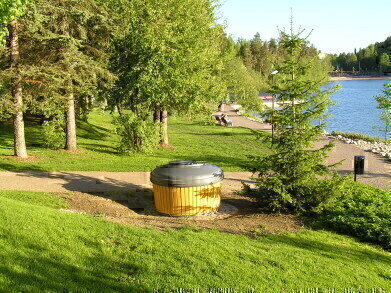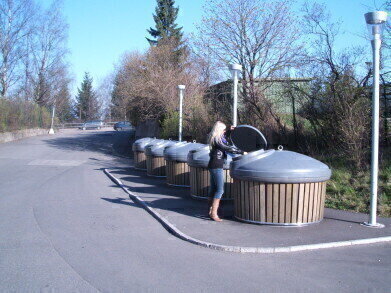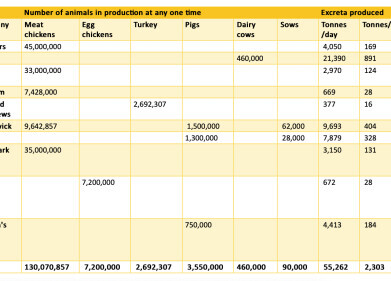Waste Management
Big Stadiums and Open Spaces Need Big Remedies
Feb 17 2014
It’s strange but sometimes true. The bigger the event or the more popular a location, the more people…but the smaller the litter bins.
Invariably, a scattering of traditional collection bins isn’t enough to cope with busy periods and some of the rubbish being swept up and cleared away spent only a few seconds in a bin before overflow and a breeze sent it on its way.
So, it would seem safe to assume that inadequate containers overflowing with rubbish are not a sight to behold. But at sports stadia, popular parks and sea fronts we seem to be stuck in ‘a small bin rut’, according to Dave Hughes, managing director of ESE World.
“It’s surprising, given that the development of efficient solutions and practices for effective management of urban waste is one of the most pressing problems communities face today. “
There are a number of drivers for better solutions: the rise in waste volumes; increased hygienic and amenity demands; overflow of waste; and the environmental impact caused by so many vehicles travelling to and from depots and recycling sites.
“Traditional management schemes are either unable to meet the demands or the remedies simply lead to increased operating costs,” says Dave. “It’s not just a problem faced by councils either, but one which private contractors must deal with as well.”
The introduction of semi underground infrastructure for waste collection provides an efficient and cost-effective option. Some European countries have been doing it this way for 20 years or so and in these countries, such as the Netherlands and Finland, stand-alone semi-underground collection points are common.
Flexibility about where the systems can be sited make them ideal where there’s limited space simply because of the number of people using an area, such as we see in some streets, parks and city centre open spaces. Semi underground collection points have their greater portion placed underground, with only the inlets above the surface, so they’re also an ideal solution for schools, colleges and universities, and sports stadia – anywhere where there are lots of people generating waste on the move.
They offer opportunities to segregate recyclable materials at the point at which they’re thrown away and more waste can be stored, and then moved with less frequent use of vehicles.
Additional advantages include fewer odours, the confinement of bacteria, increased compaction, improved street, neighbourhood and park aesthetics, limited maintenance requirements and more protection against vandalism.
“It seems the most sensible strategy; utilising the ground beneath our feet leads to environmental friendly waste management, especially in urban areas,” adds Dave. “It seems an inevitable forward step in the evolution of waste management but one that, generally speaking, the UK seems reluctant to take.
“It begs a simple question – why?”
The most recently developed semi-underground container offers a large fill volume, reduces emptying frequency and lowers maintenance costs. The housings can be clad and only one third of the product is visible.
The containers straight shape construction and wide bottom-opening ensure the smooth flow of waste from the container when it’s emptied. The body is made of concrete with steel reinforcement and absolutely watertight against ground and rain water. A semi-underground unit can be emptied in about two minutes by a vehicle with a single operator.
So if everyone’s aim is to reduce the visual impact of waste bins, reduce disturbance and smells, reduce collection costs, tackle recycling targets, and reduce carbon footprint impact, the underground solution is an excellent remedy. In any redevelopment or new build project, it is very easy to ‘plan-in’ such systems at an early stage, making the site and the long-term environment that much more attractive.
Events
May 13 2024 Munich, Germany
May 23 2024 Beijing, China
May 23 2024 Beijing, China
Jun 10 2024 Algiers, Algeria
Jun 10 2024 Frankfurt, Germany














